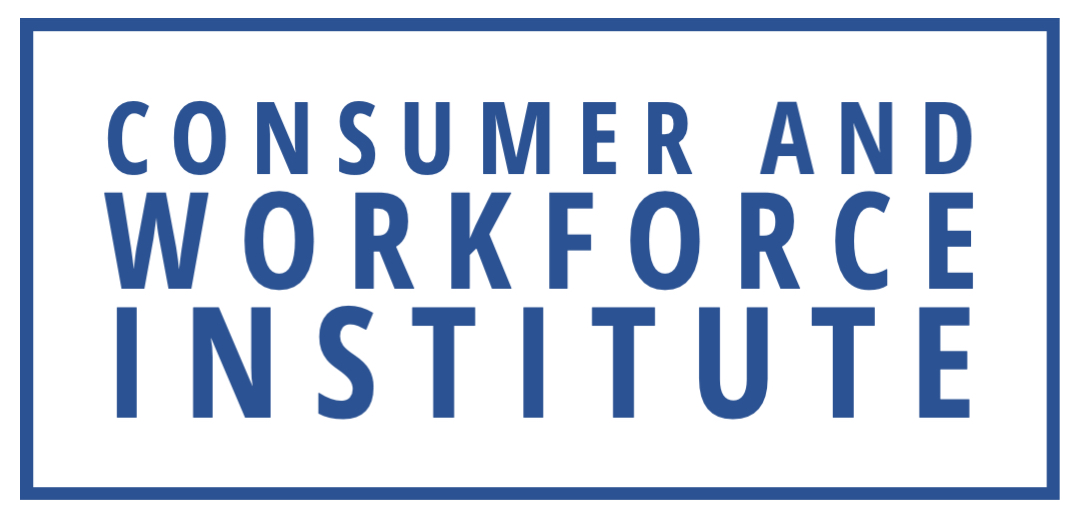Consumer and Workforce Institute
Research and Policies for a Better Economy
At the Consumer and Workforce Institute, a public policy think tank, we are interested in a range of concepts and ideas focused on supporting consumer choice and developing a strong workforce.
Workforce Development Policies
Research and policies examining the benefits of strong workforce development policies.
Consumer Choice Policies
Research on the benefit and the value of franchise laws.
Full Document Library
Collection of documents & articles discussing various workforce development and franchise issues.

About Us
Consumer and Workforce Institute
The Consumer and Workforce Institute is a 501(c)(4) public policy think tank that studies and supports research on a range of policy issues that benefit consumers and incentivize a strong and well-developed workforce. We are dedicated to researching and promoting innovative policies that ensure consumers and workers are best positioned for an ever-evolving economy. We partner with academic and research organizations to explore a variety of topics around how the government policies impact our economy.
Recent Research & Articles
This proposal authorizes a tax credit for employers hiring certain employees under the Federal Work Opportunity Tax Credit.
To amend chapter 135, RSMo, by adding thereto one new section relating to a work opportunity
Opportunities for advancement appeal to housekeepers, front-desk workers
Many lower-income Americans who left the workforce when the pandemic began three years ago are staying on the sidelines because of a lack of child care, a factor contributing to worker shortages and historically low unemployment.
Over the past ten years, public assistance programs have encouraged labor force par- ticipation as a route to self-sufficiency. The 1996 Personal Responsibility and Work Opportunity Reconciliation Act (PRWORA, or “welfare reform”) and significant expan- sions in the Earned Income Tax Credit (EITC) created the largest and most studied changes in the work incentives of the poor. However, some smaller programs that may also affect employment among the poor have been largely ignored in the policy dis- cussion. The Work Opportunity Tax Credit (WOTC), introduced in 1996, offers gener- ous subsidies to firms that hire disadvan- taged workers, including certain welfare recipients, food stamp recipients, people with disabilities, and others. The similar Welfare-to-Work (WtW) tax credit, imple- mented in 1998, offers firms potentially larger subsidies for hiring long-term wel- fare recipients. Although these programs are much smaller than cash assistance or the EITC, the tax credits totaled nearly $500 million in fiscal year 2003 according to the Office of Management and Budget (2005).

Contact Us
Please submit the form to the right to reach out to our team.
